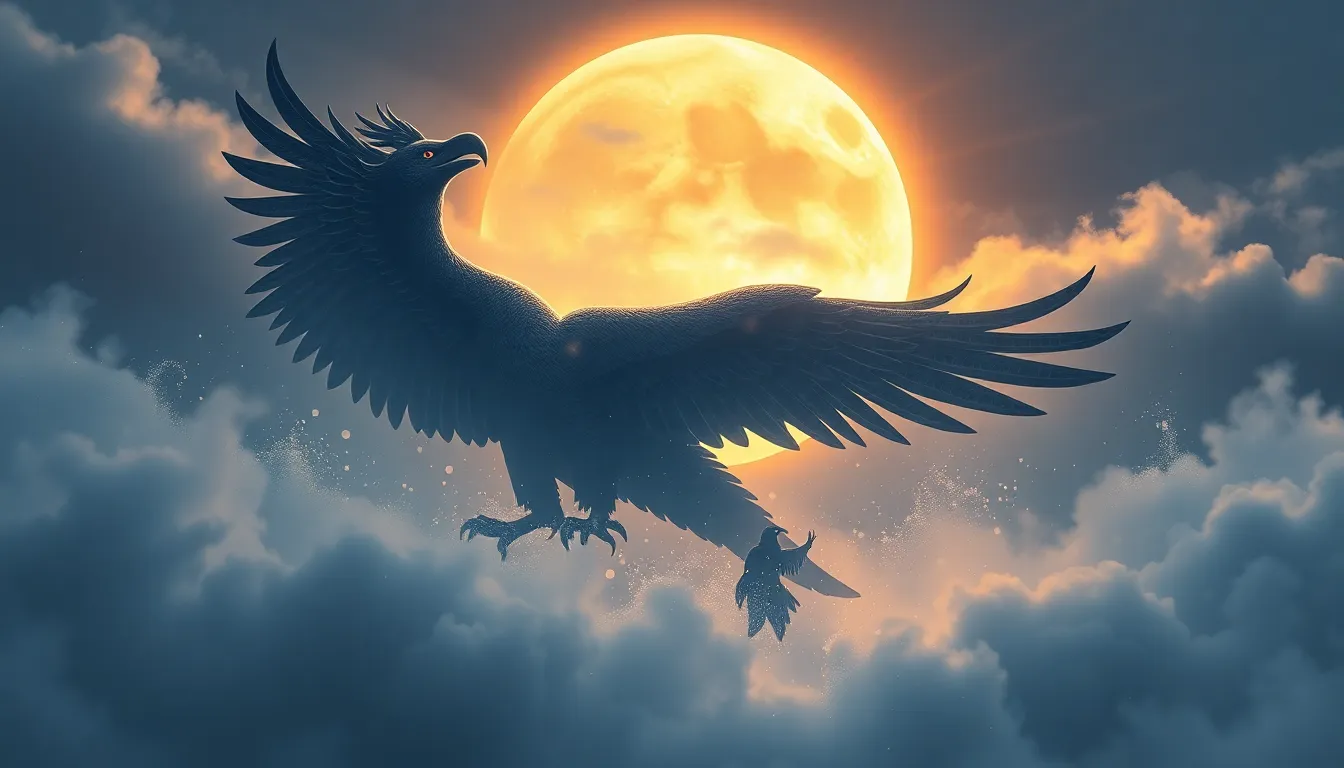The Underworld’s Judges: Examining the Chinese Mythological Figure of the Ten Kings
I. Introduction
Chinese mythology is a rich tapestry of stories, beliefs, and cultural practices that reflect the values and traditions of one of the world’s oldest civilizations. Within this mythological framework, the Ten Kings, known as the “Shí Wáng” (十王), serve a crucial role as judges of the underworld, determining the fate of souls after death. This article aims to explore the historical context, significance, and contemporary relevance of the Ten Kings, as well as their moral and ethical implications in the broader landscape of Chinese cultural identity.
II. Historical Context of the Ten Kings
A. Origins of the Ten Kings in Chinese Folklore
The origins of the Ten Kings can be traced back to a blend of ancient Chinese folk beliefs and religious practices. They are often considered manifestations of local deities that evolved over time into a more structured pantheon of judges. Their stories were first popularized during the Tang Dynasty (618-907 AD) and further solidified in later dynasties.
B. Evolution of Their Roles in Religious and Cultural Practices
Initially, the Ten Kings were seen as regional deities presiding over local funerary practices. As Buddhism and Taoism began to permeate Chinese culture, the narrative around the Ten Kings evolved, embracing a more universal aspect of judgment and morality. They became integral to various rituals aimed at ensuring a smooth transition for the deceased into the afterlife.
C. Influence of Buddhism and Taoism on the Ten Kings’ Portrayal
Buddhism introduced notions of karma and moral consequence, which influenced the depiction of the Ten Kings as figures of justice and mercy. Taoism, with its emphasis on balance and harmony, also played a role in shaping the ethical frameworks within which the Ten Kings operated.
III. The Role of the Ten Kings in the Afterlife
A. Overview of the Underworld in Chinese Mythology
The underworld, known as “Diyu” (地狱), is portrayed as a complex realm where souls undergo trials and tribulations based on their earthly deeds. It is a place of purification, where the Ten Kings preside over various levels of judgment and punishment.
B. The Ten Kings’ Responsibilities in Judging Souls
The Ten Kings are responsible for evaluating the actions of the deceased during their lifetime. Each King oversees a specific aspect of judgment, ranging from assessing moral failures to determining the appropriate punishment or reward based on one’s deeds.
C. The Process of Judgment and Its Implications for the Deceased
The judgment process involves:
- Initial Trial: Souls are brought before the first King, where their life records are reviewed.
- Interrogation: The deceased may be questioned about their actions and intentions.
- Punishment or Reward: Based on the findings, souls are sent to different realms of the underworld for either punishment, purification, or reward.
This process reflects the belief in moral responsibility and the possibility of redemption.
IV. Individual Ten Kings: Characteristics and Stories
A. Introduction to Each of the Ten Kings
Each of the Ten Kings possesses unique attributes and significance, often depicted in various forms of art and literature. Below are some of the most prominent Kings:
B. Unique Attributes and Significance of Each Judge
- King Yama (Yànláng): The chief judge, known for his fairness and authority.
- King Chujiang: Oversees the punishment of sinners, often associated with fire.
- King Pudu: Associated with mercy and redemption, he assists souls in their journey.
- King Taishan: Represents the moral law and is responsible for the final judgment.
- King Songzi: Focuses on the young and innocent, guiding them gently.
C. Notable Myths and Legends Associated with Each King
Each King has their own legends, often highlighting their moral lessons. For example, the tales of King Yama often emphasize the importance of truthfulness and the consequences of deceit.
V. The Moral and Ethical Framework of the Ten Kings
A. Themes of Justice, Morality, and Redemption in Their Judgments
The Ten Kings embody a moral framework that emphasizes justice, accountability, and the potential for redemption. Their judgments serve to illustrate the importance of ethical living and the impact of one’s actions.
B. The Influence of Confucian Ethics on the Ten Kings’ Decisions
Confucian teachings on morality and social harmony also influence the Ten Kings’ narratives. The emphasis on filial piety and respect for authority is reflected in their judgments, reinforcing societal values.
C. Cultural Teachings Derived from Their Stories
The stories of the Ten Kings are rich with moral teachings, often imparting lessons on compassion, accountability, and the need for balance between justice and mercy.
VI. The Ten Kings in Contemporary Culture
A. Representation in Modern Literature, Film, and Art
In contemporary culture, the Ten Kings have been depicted in various forms of media, including literature, films, and art. Their representations often explore themes of morality and the afterlife, resonating with audiences seeking deeper understanding of life and death.
B. Rituals and Practices Honoring the Ten Kings Today
Many Chinese communities continue to honor the Ten Kings through rituals and festivals. These practices often involve:
- Offerings of food and incense during festivals.
- Recitations of prayers and scriptures invoking the Ten Kings’ guidance.
- Artistic representations in temples and homes.
C. The Relevance of the Ten Kings in Contemporary Chinese Society
The Ten Kings remain relevant today as symbols of moral authority and guidance. Their stories encourage individuals to reflect on their actions and strive for a virtuous life.
VII. Comparative Analysis with Other Cultures
A. Similarities Between the Ten Kings and Judges from Other Mythologies
Similar to the Ten Kings, many cultures have figures that serve as judges of the dead, such as:
- Osiris in Ancient Egyptian mythology, who judged the souls of the deceased.
- Minos in Greek mythology, who was one of the judges of the underworld.
- Ahura Mazda in Zoroastrianism, who oversees the final judgment.
B. Differences in the Portrayal of Judgment and the Afterlife
While many cultures share the concept of judgment after death, the specifics of the afterlife and the nature of the judges differ significantly, reflecting each culture’s unique beliefs and values.
C. Insights Gained from Cross-Cultural Comparisons
Cross-cultural comparisons reveal shared human concerns regarding morality, justice, and the afterlife, emphasizing the universal nature of these themes across different societies.
VIII. Conclusion
A. Recap of the Significance of the Ten Kings in Chinese Mythology
The Ten Kings hold a significant place in Chinese mythology, representing the moral and ethical dimensions of life and death. They serve as guides for the living and judges for the deceased, emphasizing the importance of virtuous living.
B. The Enduring Legacy and Relevance of the Ten Kings Today
The enduring legacy of the Ten Kings continues to influence contemporary Chinese culture, offering valuable lessons in morality and justice.
C. Final Thoughts on the Intersection of Mythology and Cultural Identity
As figures deeply rooted in Chinese mythology, the Ten Kings reflect the intersection of myth, culture, and identity, serving as a reminder of the values that shape society and individual conduct.




